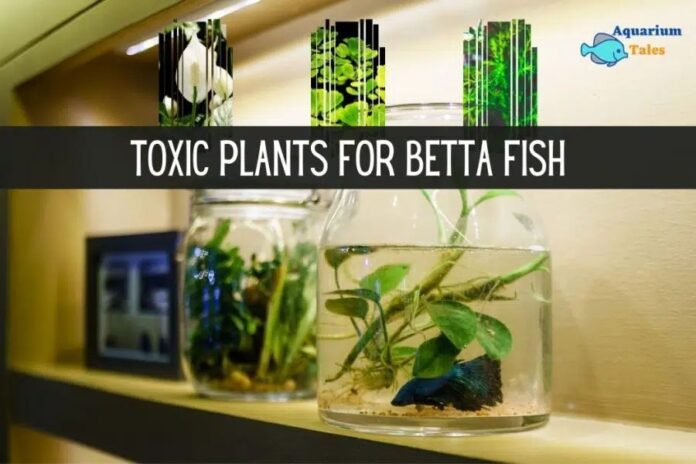The Importance of Choosing Betta-Safe Plants
Betta fish, also known as Siamese fighting fish, are popular pets due to their vibrant colors and unique personalities. They are relatively easy to care for, but they do require specific living conditions to thrive. One crucial aspect of betta fish care is the type of plants used in their tank. Live plants provide numerous benefits for bettas, including providing hiding spots, reducing stress, and improving water quality. However, not all plants are suitable for bettas, we need to avoid some toxic plants for betta fish.
It is essential to research and carefully choose the plants for your betta’s tank to ensure their safety and well-being. Some plants may cause irritation or digestive issues, while others can be fatal. It is always better to err on the side of caution and avoid any plants that may pose a risk to your betta fish.
The Top 5 Toxic Plants For Betta Fish To Avoid
In this section, we will discuss the top 5 toxic plants that should be avoided for betta fish tanks. We will provide information on the plant’s toxicity, symptoms of poisoning, and safer alternatives.
Pothos (Epipremnum aureum)
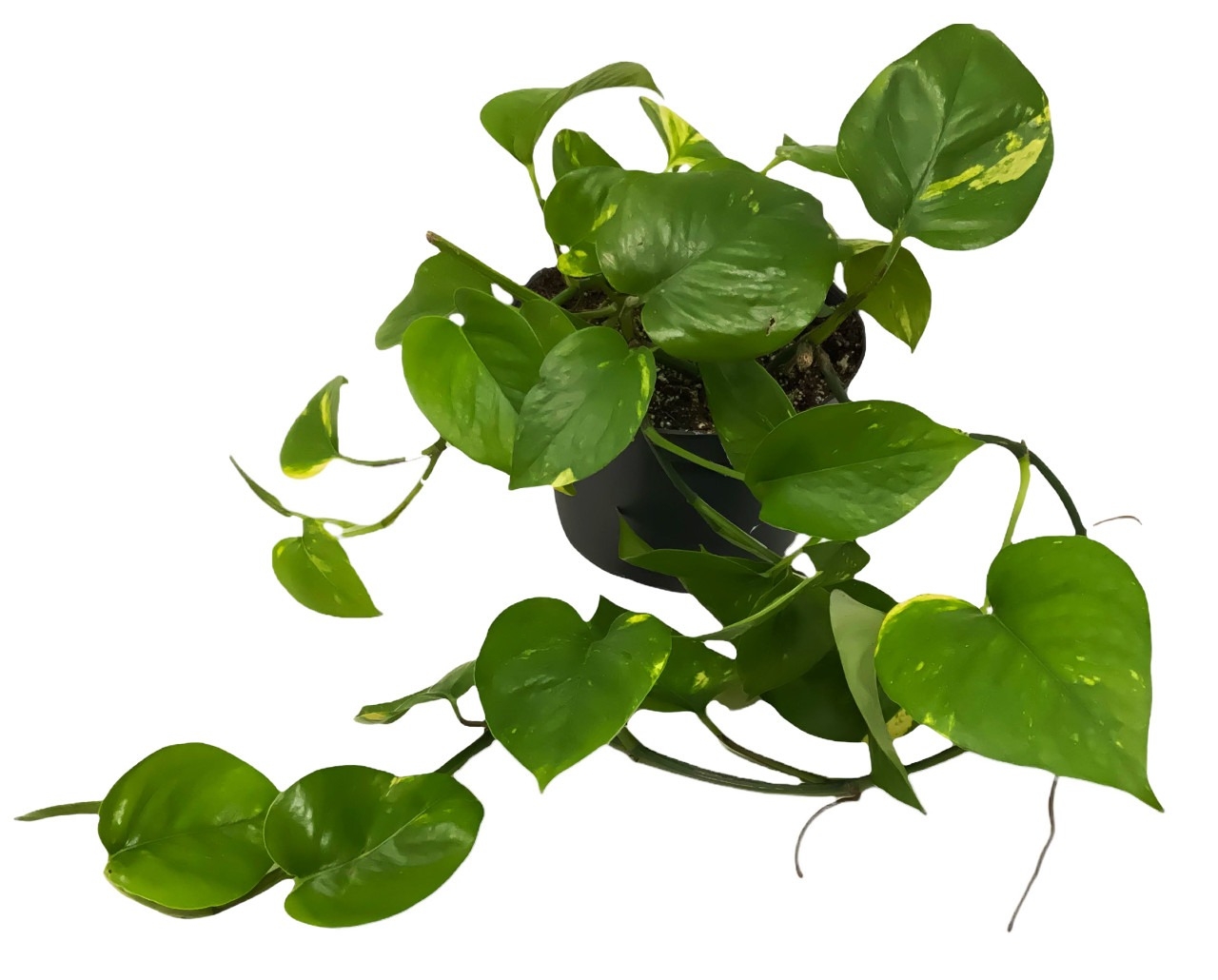
Pothos, also known as Devil’s Ivy, is a popular houseplant due to its low maintenance and attractive trailing vines. However, this plant is toxic to betta fish and should be avoided in their tanks. Pothos contains insoluble calcium oxalates, which can cause irritation and swelling of the mouth, throat, and digestive tract when ingested by bettas.
Symptoms of pothos poisoning in betta fish include difficulty breathing, excessive salivation, and loss of appetite. In severe cases, it can lead to death. If you suspect your betta has ingested pothos, remove the plant from the tank immediately and monitor your fish for any symptoms. It is also recommended to do a partial water change to dilute any toxins that may have been released into the water.
Safer alternatives to pothos for betta fish tanks include Java fern, Anubias, and Amazon sword plants. These plants are non-toxic and provide similar benefits to pothos, such as oxygenation and natural filtration.
Dieffenbachia (Dumb Cane)
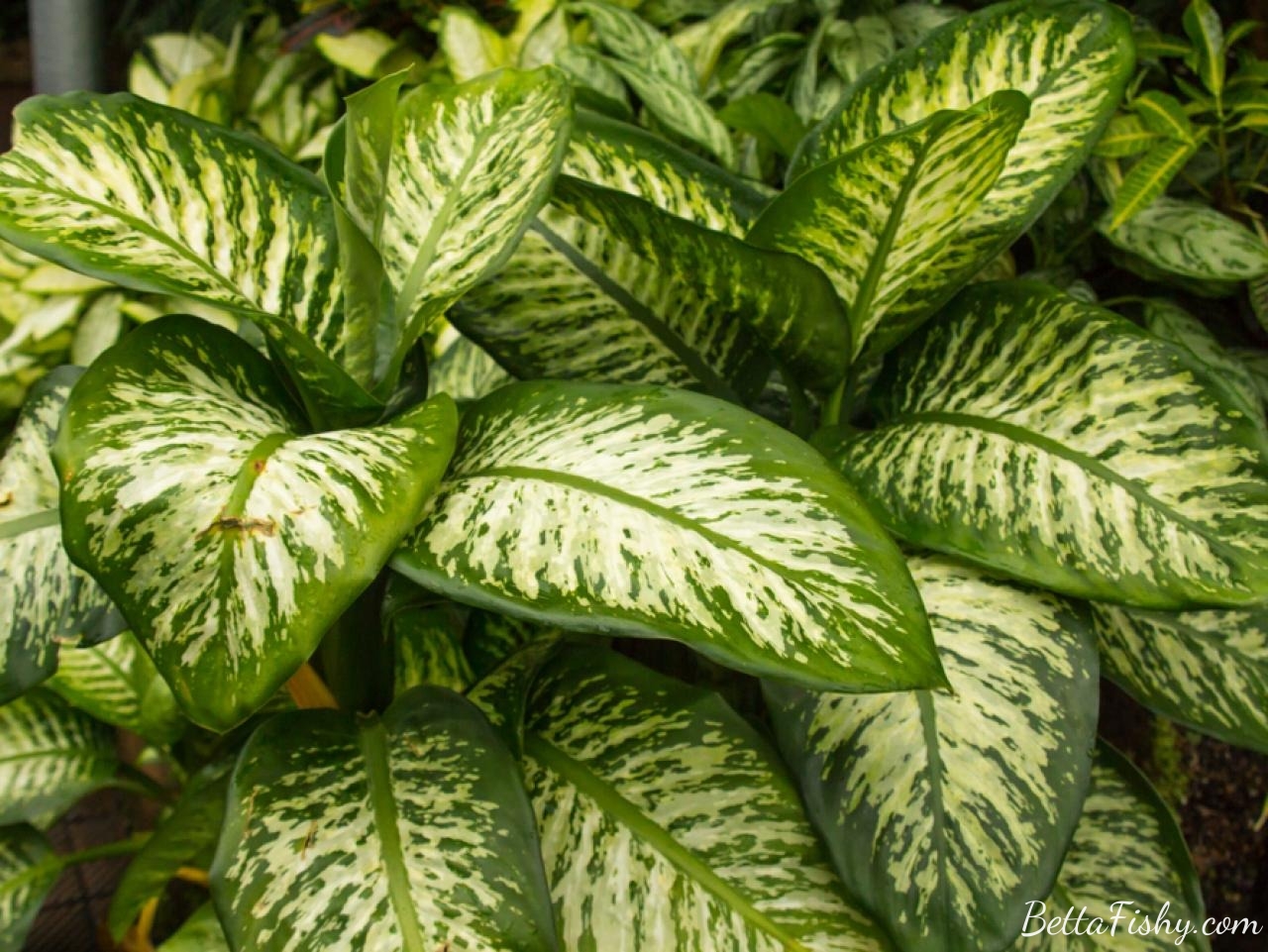
Dieffenbachia, also known as Dumb Cane, is a popular houseplant with large, colorful leaves. However, this is highly toxic plants for betta fish and should not be used in their tanks. Dieffenbachia contains insoluble calcium oxalates, just like pothos, which can cause severe irritation and swelling of the mouth, throat, and digestive tract when ingested by bettas.
Symptoms of Dieffenbachia poisoning in betta fish include difficulty breathing, excessive salivation, and loss of appetite. In severe cases, it can lead to death. If you suspect your betta has ingested Dieffenbachia, remove the plant from the tank immediately and monitor your fish for any symptoms. It is also recommended to do a partial water change to dilute any toxins that may have been released into the water.
Safer alternatives to Dieffenbachia for betta fish tanks include Java moss, Marimo balls, and Hornwort. These plants are non-toxic and provide similar benefits to Dieffenbachia, such as oxygenation and natural filtration.
Peace Lily (Spathiphyllum)
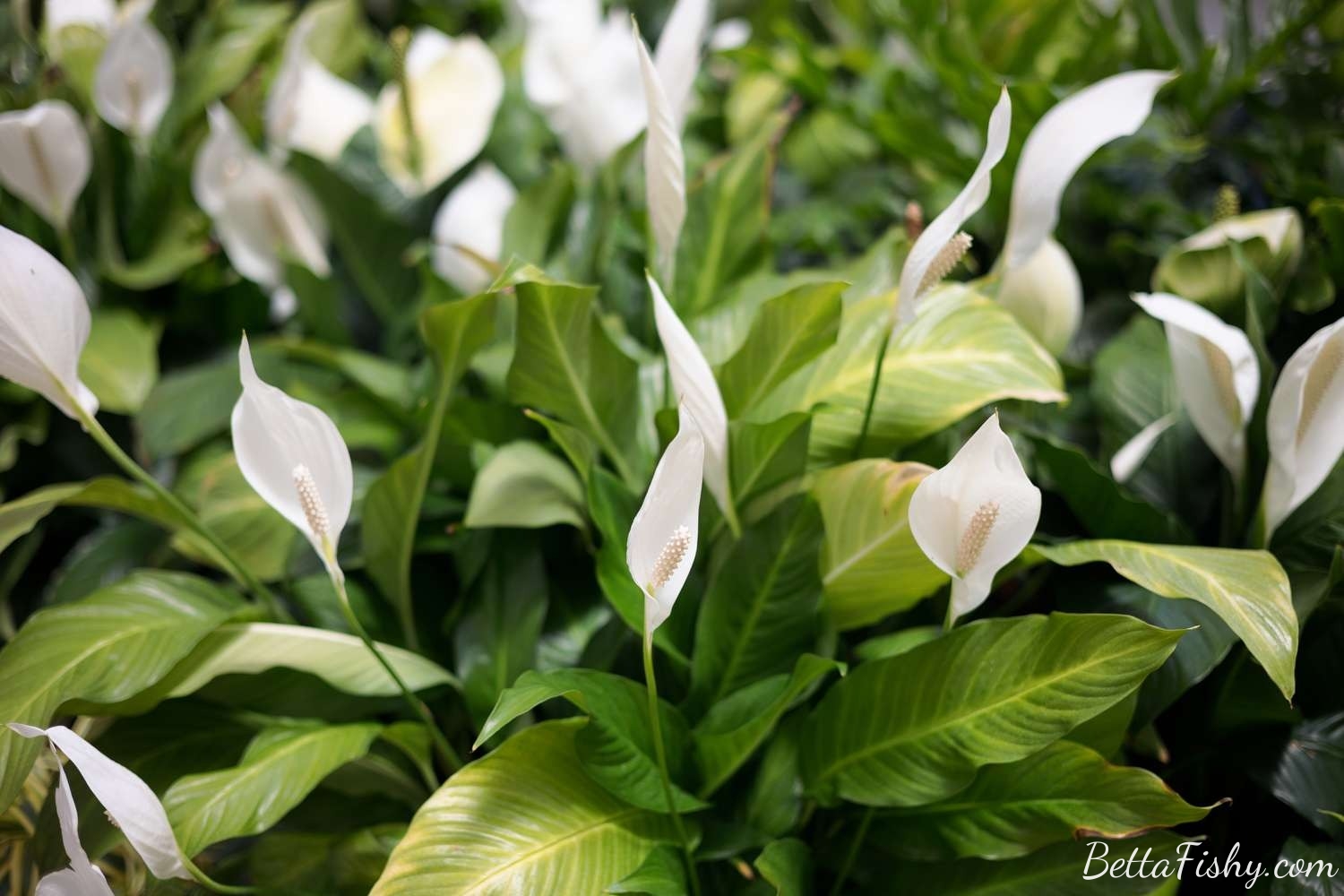
Peace lilies are popular houseplants due to their beautiful white flowers and air-purifying properties. However, these plants are toxic to betta fish and should be avoided in their tanks. The peace lily contains insoluble calcium oxalates, which can cause severe irritation and swelling of the mouth, throat, and digestive tract when ingested by bettas.
Symptoms of peace lily poisoning in betta fish include difficulty breathing, excessive salivation, and loss of appetite. In severe cases, it can lead to death. If you suspect your betta has ingested a peace lily, remove the plant from the tank immediately and monitor your fish for any symptoms. It is also recommended to do a partial water change to dilute any toxins that may have been released into the water.
Safer alternatives to peace lilies for betta fish tanks include Java fern, Anubias, and Water wisteria. These plants are non-toxic and provide similar benefits to peace lilies, such as oxygenation and natural filtration.
Philodendron (Philodendron spp.)
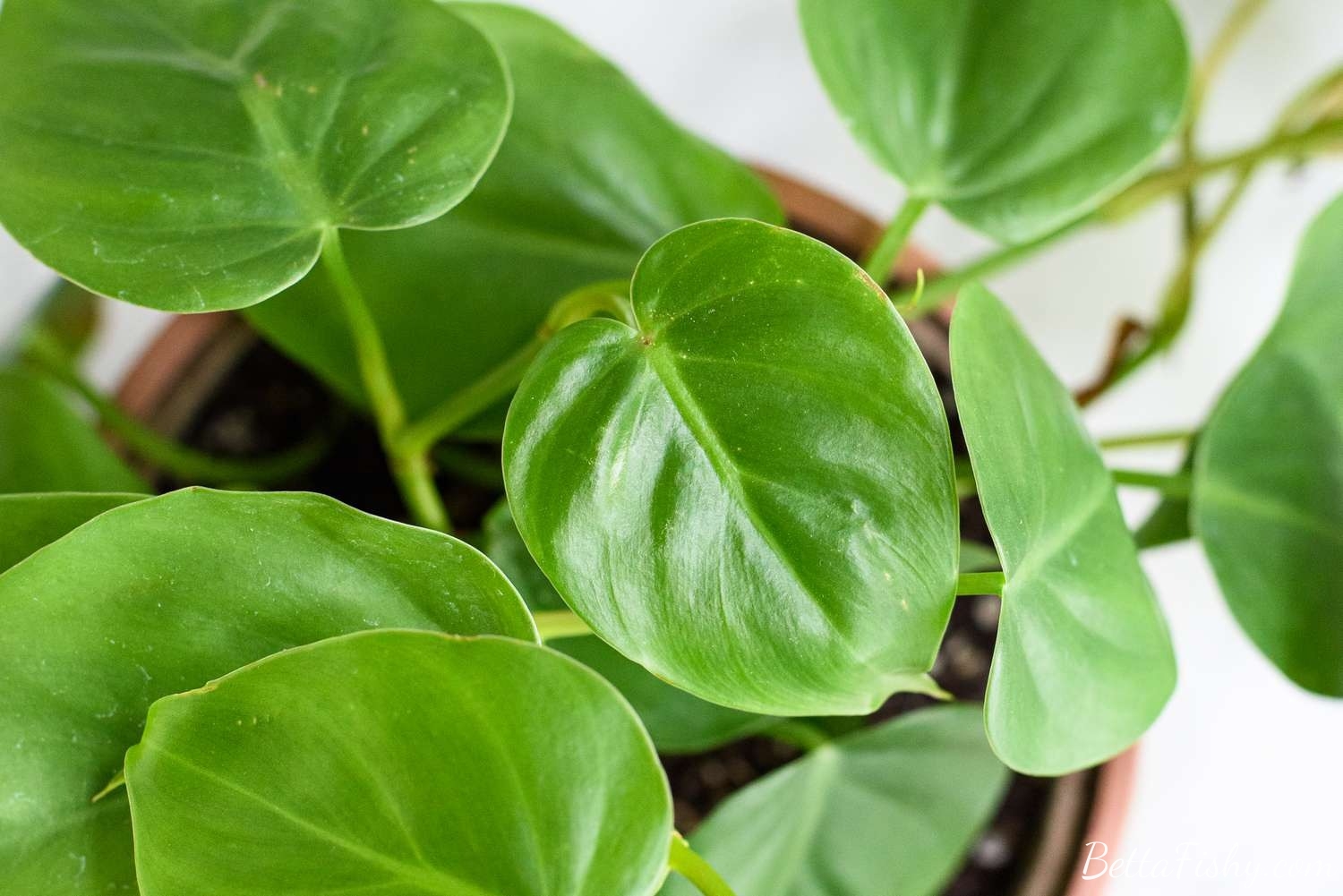
Philodendrons are popular houseplants due to their attractive foliage and low maintenance. However, they are toxic plants to betta fish and should not be used in their tanks. Philodendrons contain insoluble calcium oxalates, which can cause severe irritation and swelling of the mouth, throat, and digestive tract when ingested by bettas.
Symptoms of philodendron poisoning in betta fish include difficulty breathing, excessive salivation, and loss of appetite. In severe cases, it can lead to death. If you suspect your betta has ingested a philodendron, remove the plant from the tank immediately and monitor your fish for any symptoms. It is also recommended to do a partial water change to dilute any toxins that may have been released into the water.
Safer alternatives to philodendrons for betta fish tanks include Java fern, Anubias, and Cryptocoryne. These plants are non-toxic and provide similar benefits to philodendrons, such as oxygenation and natural filtration.
Lucky Bamboo (Dracaena sanderiana)
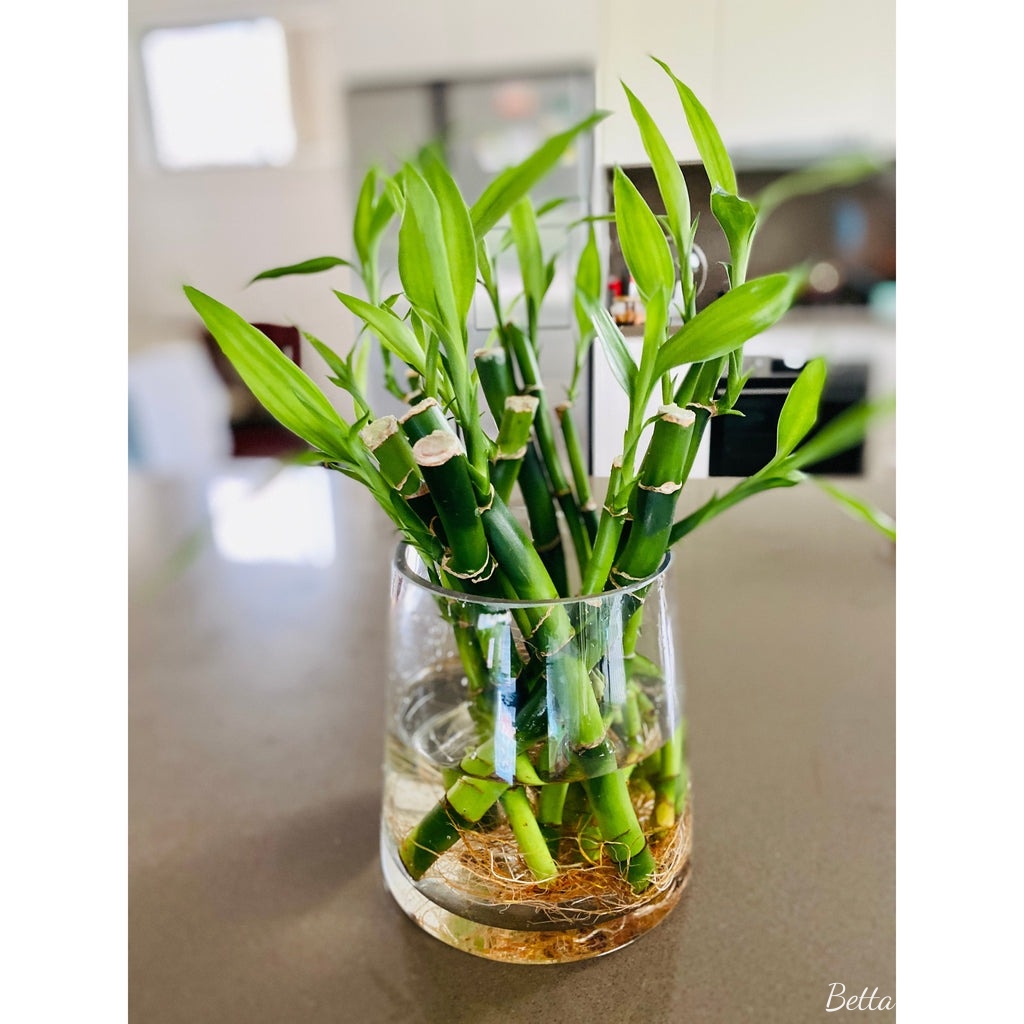
Lucky bamboo is a popular houseplant believed to bring good luck and prosperity. However, this plant is toxic to betta fish and should be avoided in their tanks. Lucky bamboo contains insoluble calcium oxalates, which can cause severe irritation and swelling of the mouth, throat, and digestive tract when ingested by bettas.
Symptoms of lucky bamboo poisoning in betta fish include difficulty breathing, excessive salivation, and loss of appetite. In severe cases, it can lead to death. If you suspect your betta has ingested lucky bamboo, remove the plant from the tank immediately and monitor your fish for any symptoms. It is also recommended to do a partial water change to dilute any toxins that may have been released into the water.
Safer alternatives to lucky bamboo for betta fish tanks include Java moss, Marimo balls, and Hornwort. These plants are non-toxic and provide similar benefits to lucky bamboo, such as oxygenation and natural filtration.
Ensuring the Well-being of Your Beloved Betta by Avoiding Toxic Plants
In conclusion, it is crucial to research and carefully choose the plants for your betta’s tank to ensure their safety and well-being. The top 5 toxic plants to avoid for betta fish tanks are pothos, Dieffenbachia, peace lily, philodendron, and lucky bamboo. These plants contain insoluble calcium oxalates, which can cause severe irritation and swelling of the mouth, throat, and digestive tract when ingested by bettas. It is always better to err on the side of caution and avoid any plants that may pose a risk to your betta fish.
By avoiding these toxic plants for betta fish and opting for safer alternatives, you can ensure a healthy and happy environment for your beloved betta. Remember to always research and double-check the safety of any plant before adding it to your betta’s tank. Your betta will thank you for providing them with a safe and thriving home.

